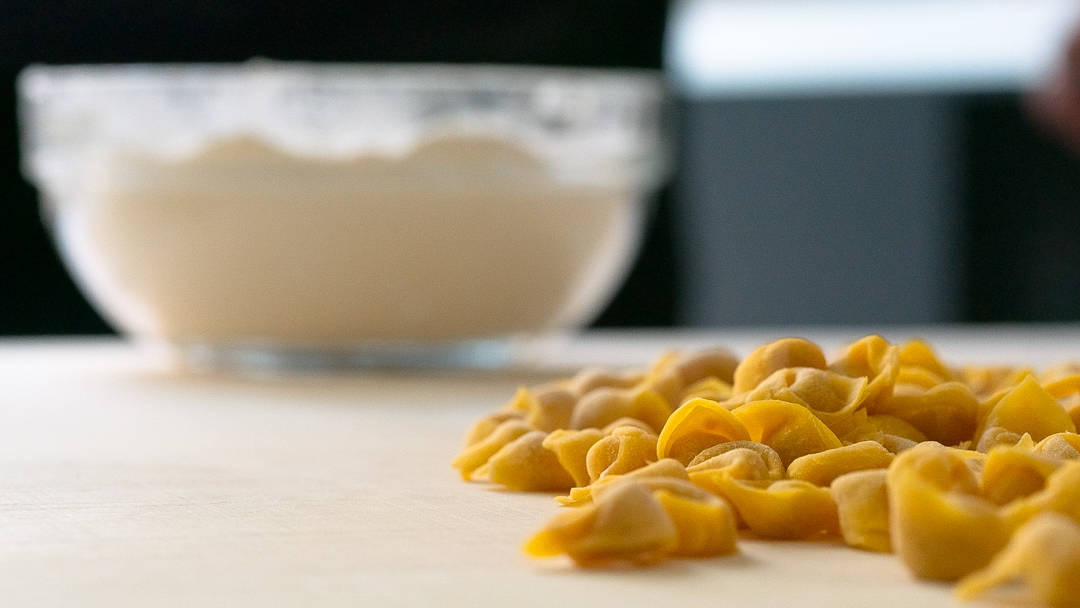Long Distance Nutrition Tips
Long Distance Nutrition Tips

Before babies and wives, I used to spend a lot of time on my bicycle. I remember when I was younger I would spend up to four or five hours riding through the French Alps.
And that was in my spare time.
These days I don’t have the freedom to ride as much or as long as I’d like to. But I still am able to get out for a few two-hour rides per week. My wife is a saint, so every-so-often I can lick a Sunday ride that will roll on for about four hours.
But it isn’t enough to just jump on the bike for all that time. My body needs to be in shape, that’s evident. But what is less obvious is my need for nutrition for those long days on the bike.
It usually takes me about a week or ten days to get to the point where my body’s metabolism is ready for a long distance ride.
Everyone’s diet and regimen are different. I’m not writing this post for the die-hard Ironman triathlete. Nor is it for anyone with any pending condition. Always consult your doctor before changing any of your eating habits.
However, these are a few pointers to consider the next time you are contemplating a day in the saddle:
Hydration
A few weeks ago I wrote this post on the need for proper hydration. Better yet, hydration works best when coupled with some kind of “binding agent” (like mineral salts or powder). It is easier for a cyclist to hydrate when the body retains certain salts and minerals. But don’t start hydrating the day you ride.
Drink plenty of water the night before (actually, drink plenty of water always). Studies show that our bodies are made up of at least 60% water and we need to keep that percentage steady. At the same time, we need to replace the vial salts (potassium, primarily) that leave our body every time we perspire on a ride. So don’t forget the water, and through some drink mix in there for your health and to give you some flavor.
Talking Vitamins and Minerals
You have fat-soluble vitamins and water-soluble vitamins floating around in your body. When you ride for long distances, the fat-soluble vitamins stay with you. When you sweat, the water-soluble ones are the ones you need to replace, especially B-complex and vitamin C.
Take your daily dose of supplements and vitamins (whatever you have discussed with your doctor). Ask them how you should approach vitamin intake when you’re out on your bike. Having calcium, potassium, and magnesium in your system helps your muscles, among other organs. Drinking them in while you ride can prevent you from being deficient in them when you’re off the bike.
Carbohydrates
Marathon runners typically eat several hundred grams of pasta before a race. You don’t have to go to that level, but a good plate of penne with some fresh vegetables will help you the next day. Those carbohydrates are the quick burning blocks fueling muscle contractions. They will help sustain you at the beginning of your ride. They also taste great.
Protein
Clean, lean protein. These days many producers jack their protein with hormones or steroids. Avoid these. They will only wreak havoc on your system. Go with clean protein that is low in excess fat: chicken, lean beef or legumes (if you’re vegetarian, or not). The protein will help you rebuild torn muscle at the end of your ride and assists recovery.
Ride Food
Always bring something along for a long ride. Maybe it is a granola bar or a few chews, but something needs to be in your back pocket if you’re out for hours at a time. My friends and I used to stop after a few hours and have a sandwich (if it was lunch time). In France, we found baguettes with ham and beurre – yes butter. Loved it. Could eat them all the time. If you are burring some 2,000 calories on a four-hour bike ride, a slab of butter is not going to kill you.
In fact, some fats are good for you.
The good and bad about fats
Studies will tell you many things about your diet: what foods are good and which are bad. If you wait long enough, scientists will publish new studies negating everything you just read. The fact is, omega-3 and omega-6 polyunsaturated fats are good for your body. These are the fats that help your immune system. Omega-9 monounsaturated fats help decrease inflammation (especially when you have sore muscles).
Once you get all the nutrients you need, you’re ready for those long rides. While you’re at it, check out some of Ciclismo Classico’s grand journeys such as Epic Italy and Pyrenees Sea to Sea.
And make sure to have that second bowl of pasta at dinner.